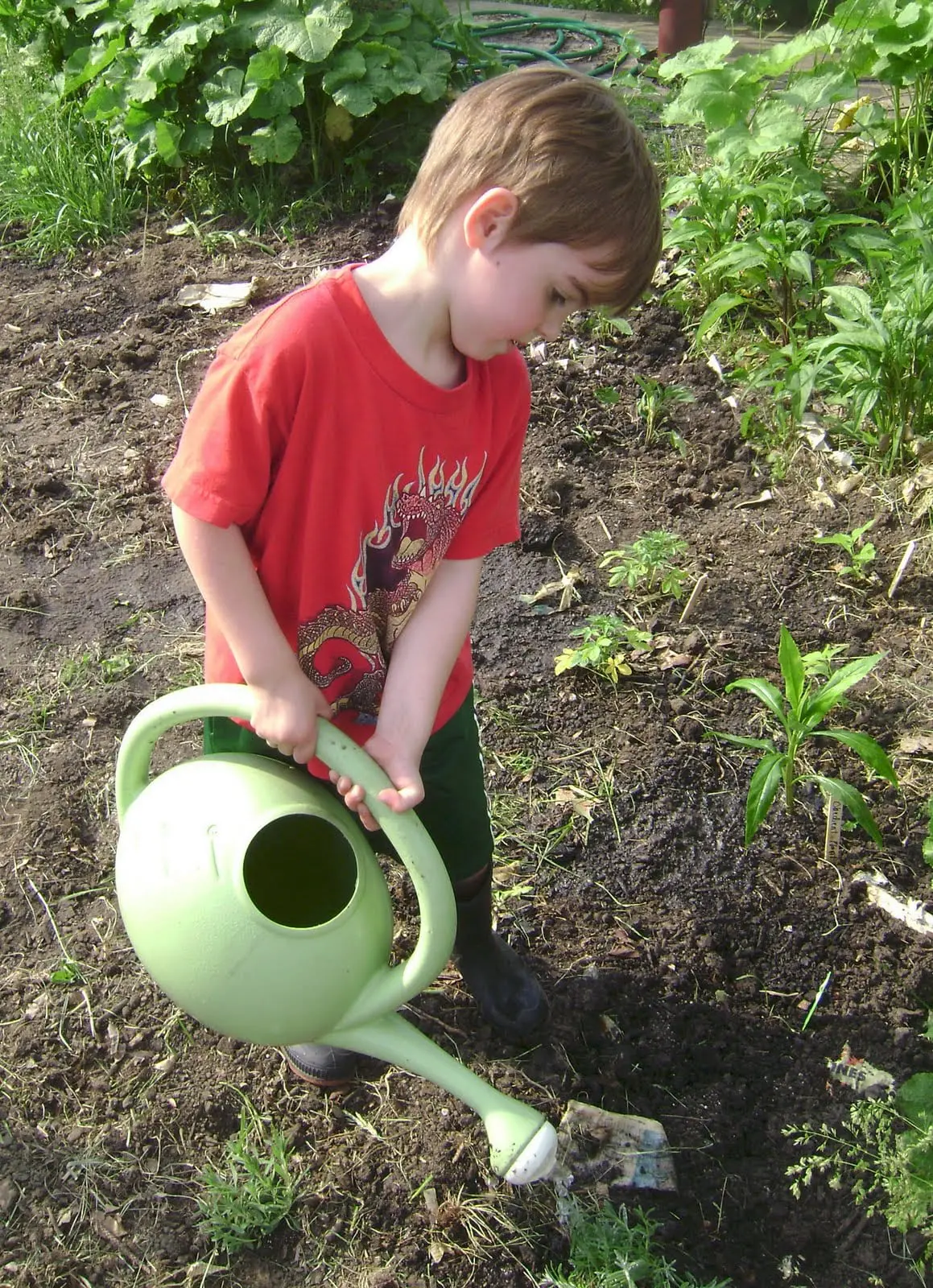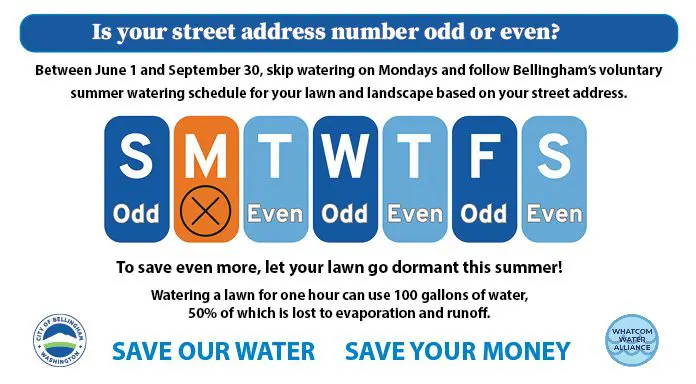
During the dry summer months, outdoor watering increases our community’s daily average drinking water demand from 10 to 15 million gallons per day. This places an extra strain on the City’s drinking water supply. Watering lawns and landscapes accounts for 80-90% of the increase. Nearly half of this water is wasted due to evaporation loss, over-watering and run-off.
Pledge to Reduce Your Outdoor Watering
Would you like to reduce your outdoor watering to save money, time, and a valuable natural resource? Complete our water conservation pledge to learn more about saving water and to get some FREE outdoor water conservation tools mailed to your home (if you are a City water customer). Completing the pledge takes less than five minutes.
Smart Watering Tips
- Follow the voluntary summer watering schedule. Bellingham residents are asked to limit watering from June 1 to September 30 annually to reduce stress on the City’s drinking water supply. The summer watering schedule is based on street address numbers.
- Even-numbered address: Water only on Tuesdays, Thursday, and Saturdays
- Odd-numbered address: Water only on Sundays, Wednesdays, and Fridays
- No watering on Mondays
- Better yet, let your lawn go dormant in the summer. The grass will grow back in the fall.

- The average lawn requires only one inch of water per week to stay green. Overwatering doesn’t improve your lawn’s health and results in runoff and water waste.
- Regularly check and adjust your sprinklers. Water only your lawn and not the pavement. See if you qualify for an irrigation controller rebate.
- In order to reduce the amount of water lost to evaporation, the best time to water your lawn is in the mornings between 7 a.m.-10 a.m.
- Mow your lawn with blades set high; grass that is 2” to 3” tall promotes a healthier root system and helps retain soil moisture.
- Consider replacing lawn with native plants to use less water, fewer chemicals, and eliminate mowing.
Find more outdoor water conservation tips.
Water Conservation for Irrigation Systems
Irrigation systems have ample opportunities to waste water therefore ample opportunities to implement water conservation practices. The Irrigation System Best Management Practices guide outlines 13 best management practices to help improve the functionality of your irrigation system and conserve water at the same time.
Additional Resources
- Winterize Your Water System (PDF)
- Rainwater Harvesting
- Outdoor Water Conservation Pledge
- Water Conservation Rebate Program
- Water Consumption Calculator
- Water Metering Program
- Water Quality
- Whatcom Water Alliance
